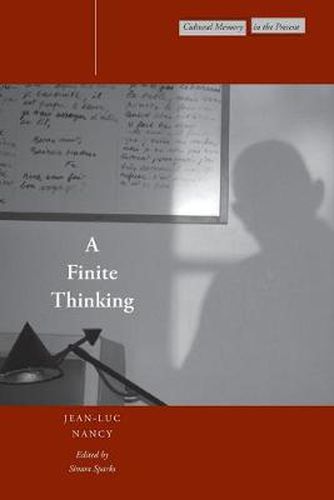Readings Newsletter
Become a Readings Member to make your shopping experience even easier.
Sign in or sign up for free!
You’re not far away from qualifying for FREE standard shipping within Australia
You’ve qualified for FREE standard shipping within Australia
The cart is loading…






This book is a rich collection of philosophical essays radically interrogating key notions and preoccupations of the phenomenological tradition. While using Heidegger’s Being and Time as its permanent point of reference and dispute, this collection also confronts other important philosophers, such as Kant, Nietzsche, and Derrida. The projects of these pivotal thinkers of finitude are relentlessly pushed to their extreme, with respect both to their unexpected horizons and to their as yet unexplored analytical potential. A Finite Thinking shows that, paradoxically, where the thought of finitude comes into its own it frees itself, not only to reaffirm a certain transformed and transformative presence, but also for a non-religious reconsideration and reaffirmation of certain theologemes, as well as of the body, heart, and love. This book shows the literary dimension of philosophical discourse, providing important enabling ideas for scholars of literature, cultural theory, and philosophy.
$9.00 standard shipping within Australia
FREE standard shipping within Australia for orders over $100.00
Express & International shipping calculated at checkout
This book is a rich collection of philosophical essays radically interrogating key notions and preoccupations of the phenomenological tradition. While using Heidegger’s Being and Time as its permanent point of reference and dispute, this collection also confronts other important philosophers, such as Kant, Nietzsche, and Derrida. The projects of these pivotal thinkers of finitude are relentlessly pushed to their extreme, with respect both to their unexpected horizons and to their as yet unexplored analytical potential. A Finite Thinking shows that, paradoxically, where the thought of finitude comes into its own it frees itself, not only to reaffirm a certain transformed and transformative presence, but also for a non-religious reconsideration and reaffirmation of certain theologemes, as well as of the body, heart, and love. This book shows the literary dimension of philosophical discourse, providing important enabling ideas for scholars of literature, cultural theory, and philosophy.